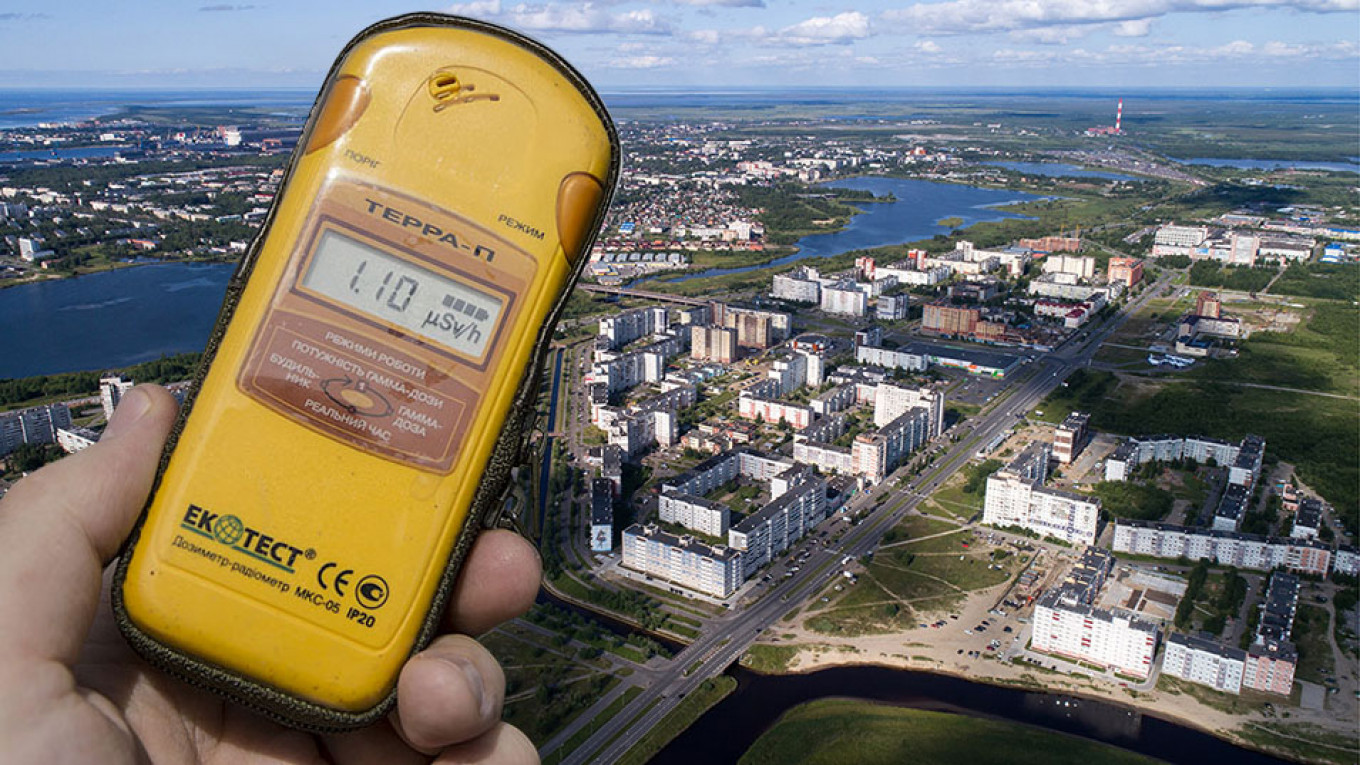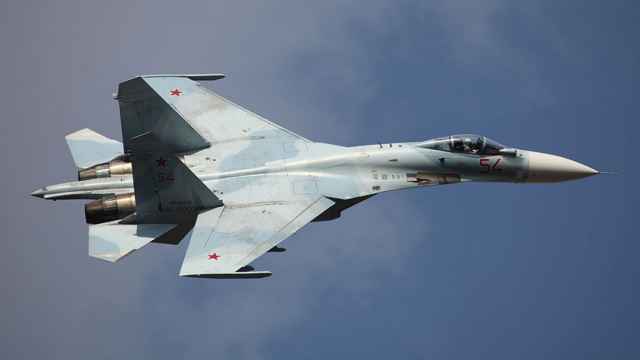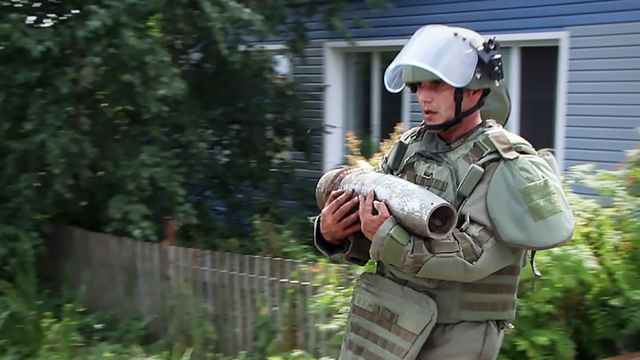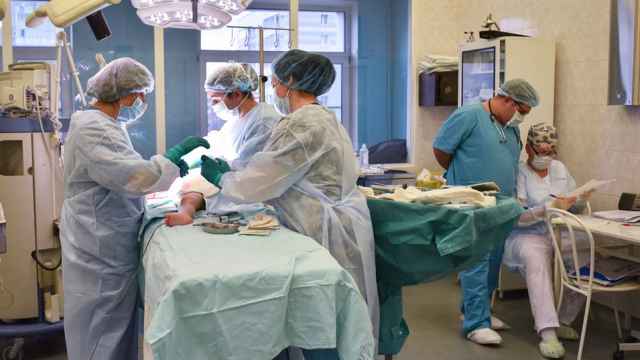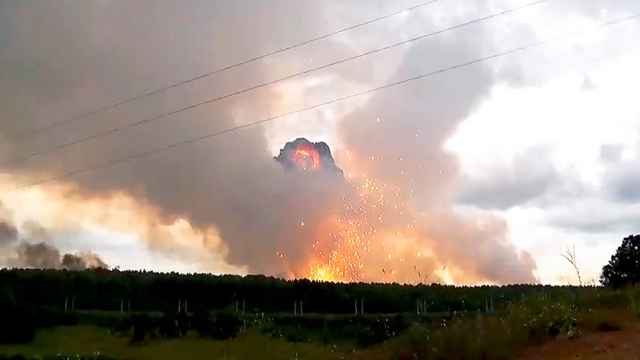Residents of two northern Russian cities are stocking up on iodine that is used to reduce the effects of radiation exposure after a mysterious accident at a nearby military testing site, regional media have reported.
The Defense Ministry has given few details of the accident, saying only that two people were killed and six injured by the explosion of a liquid-propelled rocket engine at a test site in Russia's north. Authorities have shut down an area of the Dvina Bay in the White Sea to shipping for a month near the accident site, without explaining why.
Although the Defense Ministry initially said no harmful chemicals were released into the atmosphere and radiation levels were unchanged, authorities in the nearby city of Severodvinsk reported what they described as a brief spike in radiation. No official explanation has been given for why such an accident would cause radiation to spike.
"Everyone has been calling asking about iodine all day," one pharmacy was quoted as saying by 29.ru, a media outlet that covers the Arkhangelsk region.
It said the run on iodine had occurred in the northern port cities of Arkhangelsk and Severodvinsk and that several pharmacies had run out. Severodvinsk is the site of a shipyard that builds nuclear-powered submarines.
"We still have iodine left ... but a really large number of people have come in for it today," another pharmacy was quoted as saying.
An unidentified naval officer quoted by the Kommersant business daily said the accident could have occurred at a testing site at sea and that the explosion of a rocket could have caused a toxic fuel spill.
Russian media have said that the rocket engine explosion may have occurred at a weapons testing area near the village of Nyonoksa in Arkhangelsk region.
Those reports say an area near Nyonoksa is used for tests on weapons, including ballistic and cruise missiles that are used by the Russian Navy. Some reports have speculated that the test may have involved a new hypersonic missile called Tsirkon.
Greenpeace cited data from the Emergency Situations Ministry that it said showed radiation levels had risen 20 times above the normal level in Severodvinsk around 30 kilometers from Nyonoksa.
“We need to understand the radiation jump in cities closer [to the site of the explosion] than Severodvinsk,” Rashid Alimov, the head of Greenpeace Russia’s energy program, told The Moscow Times.
“If a fairly large amount of radionuclides has been released, we can expect Norwegian services to record that. But we need to understand the radiation jump in cities closer [to the site of the explosion] than Severodvinsk,” Alimov added.
Andrei Frolov, co-chair of Moscow’s Public Environmental Organizations Union, speculated that the blast may have been caused by “tests of torpedoes with nuclear warheads.”
“I think the radioactive contamination was fairly weak and the consequences will be [felt by] the people who were at the scene of the incident itself. I don’t think this will extend beyond the military range,” Frolov told The Moscow Times.
Reuters contributed reporting to this article.
A Message from The Moscow Times:
Dear readers,
We are facing unprecedented challenges. Russia's Prosecutor General's Office has designated The Moscow Times as an "undesirable" organization, criminalizing our work and putting our staff at risk of prosecution. This follows our earlier unjust labeling as a "foreign agent."
These actions are direct attempts to silence independent journalism in Russia. The authorities claim our work "discredits the decisions of the Russian leadership." We see things differently: we strive to provide accurate, unbiased reporting on Russia.
We, the journalists of The Moscow Times, refuse to be silenced. But to continue our work, we need your help.
Your support, no matter how small, makes a world of difference. If you can, please support us monthly starting from just $2. It's quick to set up, and every contribution makes a significant impact.
By supporting The Moscow Times, you're defending open, independent journalism in the face of repression. Thank you for standing with us.
Remind me later.


